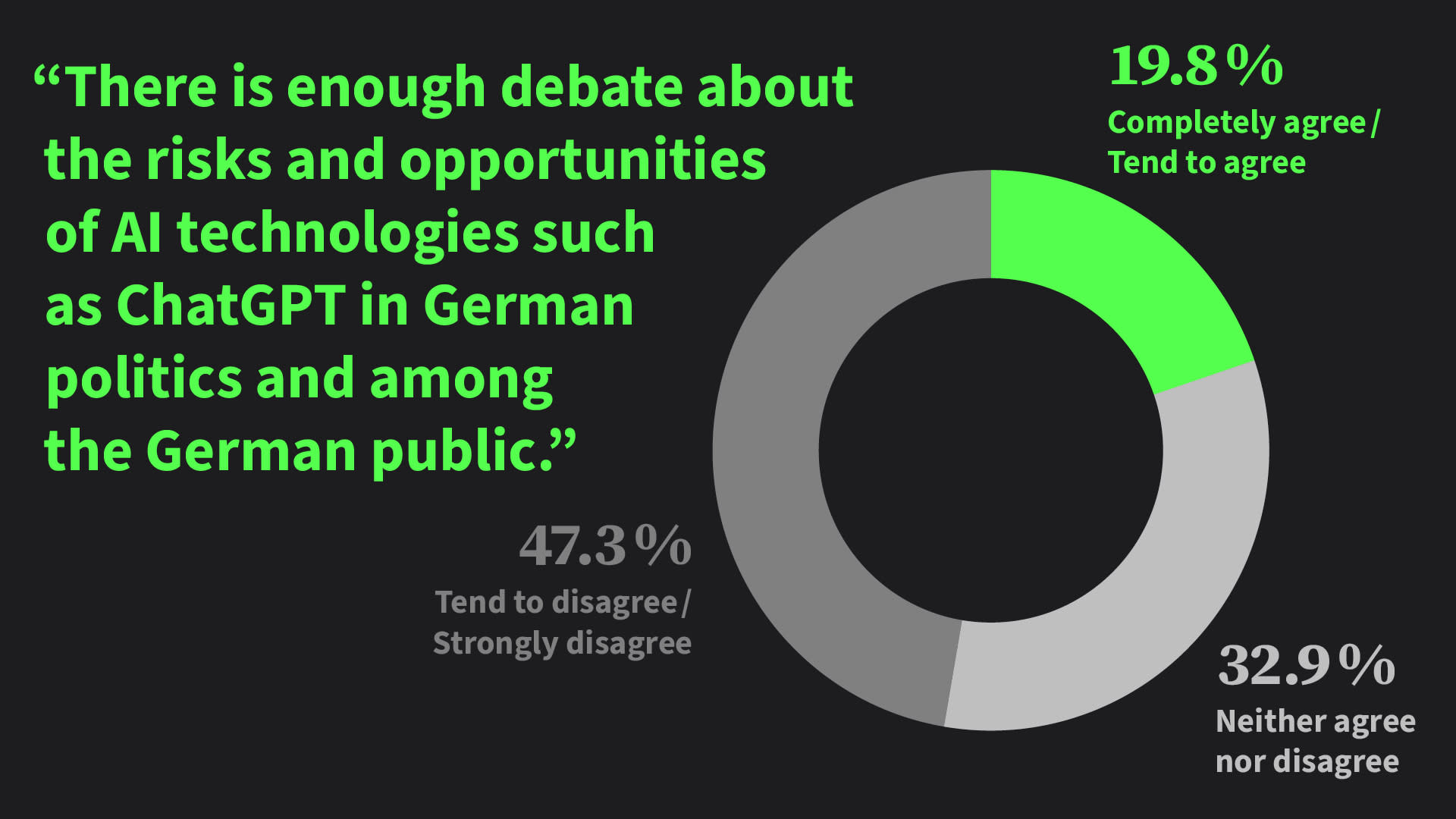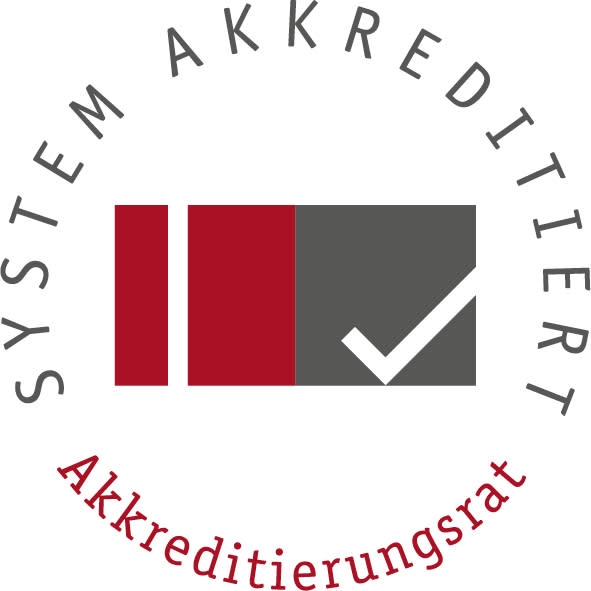More quality of life, more regulation? The influence of AI bots on our society
"ChatGPT and comparable AI technologies will greatly improve people's quality of life in the next 10 years." This is what 32.9 per cent of working people in Germany say, according to the IU study "ChatGPT and the like - the big debate. What do people think of AI bots? What concerns do people have?".
The respondents thus paint a positive picture of our future with AI bots like ChatGPT - but under two conditions: First, there is a strong desire for regulation, as the IU study shows. On the other hand, 47.3 per cent of those surveyed think there is not enough debate among the German public and politicians about the opportunities and risks of AI technologies like ChatGPT. But this is necessary, as Prof. Dr Thomas Zöller, Professor of Data Science and Artificial Intelligence at the IU International University, confirms.
View the study in PDFThe future of AI bots like ChatGPT: The facts
of respondents are basically interested in AI technologies such as ChatGPT.
of respondents think AI technologies like ChatGPT will greatly improve people's quality of life in the next 10 years.
do not feel well informed about the opportunities and risks of AI such as ChatGPT.

ChatGPT and the like: Ethical questions still unresolved
"There is a lack of laws and clear guidelines for the prudent regulation of AI in Germany. (...) To address this, policymakers, experts and the public need to come together and comprehensively discuss AI technologies such as ChatGPT. (...) Only by having this discussion can we establish responsible, future-oriented AI policies."
Prof. Dr Thomas Zöller
Professor of Data Science and Artificial Intelligence
at the IU International University of Applied Sciences
Opportunities, risks and opinions on AI bots like ChatGPT
Three out of four workers in Germany are interested in AI technologies like ChatGPT - but only 12.7 per cent have no concerns when it comes to using them. What is behind all this? And how will we live with ChatGPT & the like in the future?

Multiple concerns about ChatGPT and the like
Most respondents have one or more concerns about using AI technologies like ChatGPT. The top 3* are wrong answers, lack of privacy and opaque sources. Fear of misunderstandings and too much dependence on AI bots are also concerns.
*Excerpt from answers to the question: "Why do you have / would you have concerns about using technologies such as ChatGPT?"
Source: IU Study "ChatGPT and the like - the big debate. What do people think of AI bots? What concerns do people have?"

Many call for regulation of AI bots like ChatGPT
More than half of the respondents (55.1 per cent)* call for close regulation of the development and use of AI technologies such as ChatGPT - even if this restricts innovation. The older the respondents, the louder the call for regulation. You can find the analysis by generation in the PDF of the study.
*Answers to the question: "To what extent do you agree or disagree with the following statement?"
Source: IU Study "ChatGPT and the like - the big debate. What do people think of AI bots? What concerns do people have?"

There is too little discussion about the opportunities and risks of ChatGPT and the like
Nearly half of the respondents* think there is not enough discussion in the German public and politics about the opportunities and risks of AI technologies such as ChatGPT.
*Answers to the question: "To what extent do you agree or disagree with the following statement?"
Source: IU Study "ChatGPT and the like - the big debate. What do people think of AI bots? What concerns do people have?"

You, Me and ChatGPT: Study on the Impact of AI Bots on Society
What impact will AI technologies like ChatGPT have on our future and society? All the facts and expert comments in the IU study.
View the study in PDFMore info on the IU Study
What you get for free
Information on study content & electives
Information on career prospects
Information on financing options






